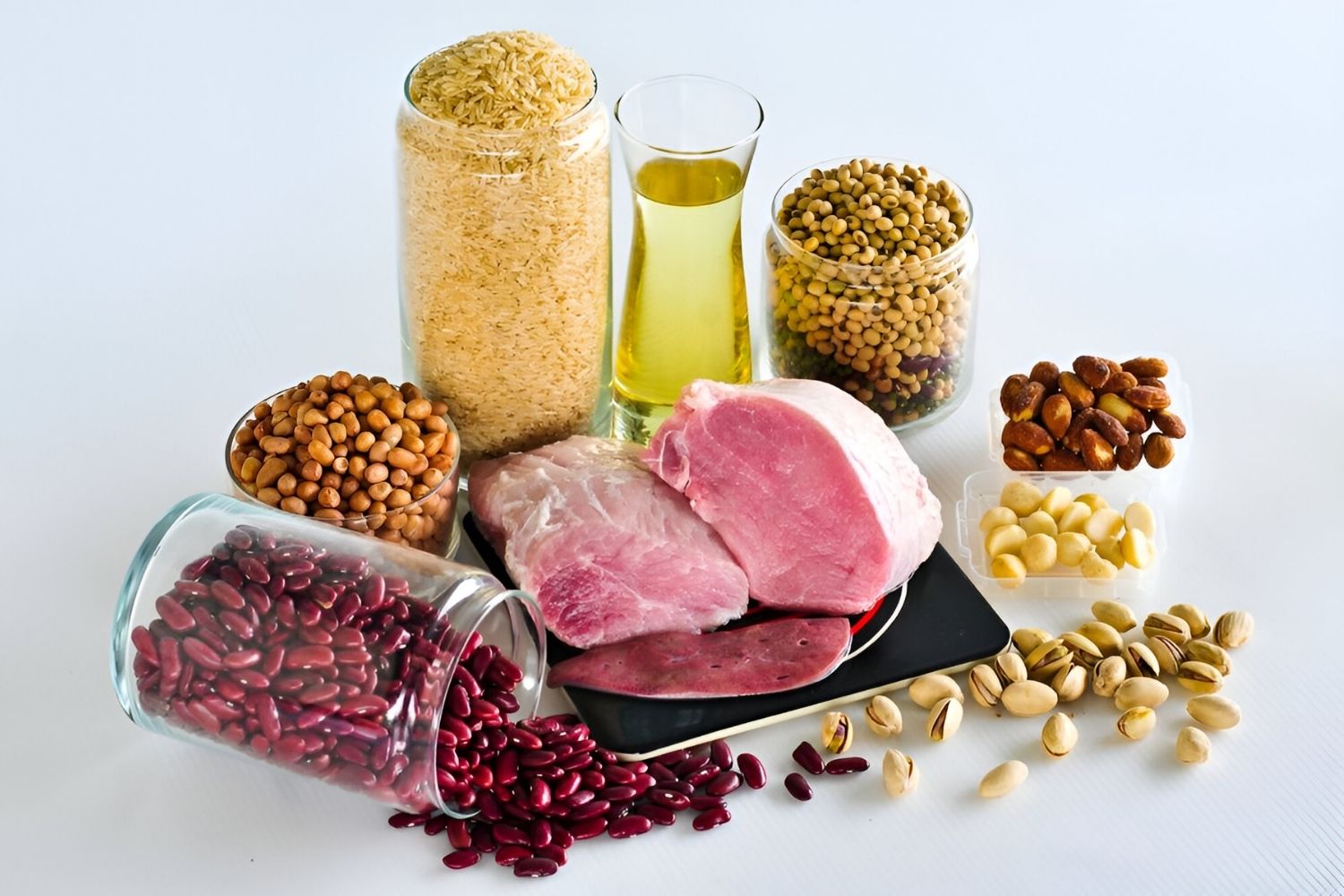
Thiamine, also known as Vitamin B1, plays a crucial role in maintaining overall health. This essential nutrient helps convert food into energy, supports brain function, and keeps the nervous system running smoothly. Without enough thiamine, the body can face serious issues like fatigue, nerve damage, and even heart problems. Found in foods like whole grains, meat, and fish, thiamine is vital for everyone. But how much do you really know about this important vitamin? Here are 30 fascinating facts about thiamine that will help you understand its importance and how to ensure you get enough in your diet.
Key Takeaways:
- Thiamine, also known as Vitamin B1, is crucial for energy metabolism, heart health, and brain function. It can be found in foods like whole grains, pork, and fish, and is essential for overall well-being.
- Thiamine deficiency can lead to serious health issues like beriberi and Wernicke-Korsakoff syndrome. It's important to include thiamine-rich foods in your diet and consult a healthcare provider before starting any supplement regimen.
What is Thiamine?
Thiamine, also known as Vitamin B1, is a water-soluble vitamin essential for various bodily functions. It plays a crucial role in energy metabolism and the proper functioning of the nervous system. Here are some fascinating facts about this vital nutrient.
- Thiamine was the first B vitamin discovered, hence the name Vitamin B1.
- It helps convert carbohydrates into energy, making it essential for metabolism.
- Thiamine is crucial for the proper functioning of the heart, muscles, and nervous system.
- It is found in foods like whole grains, meat, and fish.
- Thiamine deficiency can lead to a disease called beriberi, which affects the cardiovascular and nervous systems.
Thiamine in Daily Diet
Incorporating thiamine into your daily diet is easier than you might think. Various foods are rich in this essential vitamin, ensuring you get your daily dose without much hassle.
- Whole grains like brown rice and oats are excellent sources of thiamine.
- Pork is one of the richest sources of thiamine among meats.
- Fish like trout and tuna also contain significant amounts of thiamine.
- Legumes such as beans and lentils are good plant-based sources.
- Nuts and seeds, especially sunflower seeds, are packed with thiamine.
Health Benefits of Thiamine
Thiamine offers numerous health benefits, making it a vital nutrient for overall well-being. Its role extends beyond just energy metabolism.
- Thiamine supports cognitive function and can help improve memory.
- It aids in the production of neurotransmitters, which are essential for brain function.
- Thiamine helps maintain a healthy cardiovascular system.
- It can boost your immune system, helping you fight off illnesses.
- Thiamine is essential for muscle function and coordination.
Thiamine Deficiency
A lack of thiamine in the diet can lead to several health issues. Understanding the symptoms and consequences of thiamine deficiency is crucial for maintaining good health.
- Thiamine deficiency can cause beriberi, which affects the heart and nervous system.
- Symptoms of beriberi include weakness, pain in the limbs, and irregular heartbeats.
- Severe thiamine deficiency can lead to Wernicke-Korsakoff syndrome, a serious brain disorder.
- Alcoholism is a common cause of thiamine deficiency, as alcohol interferes with thiamine absorption.
- Pregnant and breastfeeding women need higher amounts of thiamine to support fetal and infant development.
Thiamine Supplements
Sometimes, dietary intake alone may not be enough to meet your thiamine needs. In such cases, supplements can be a helpful addition to your routine.
- Thiamine supplements are available in various forms, including tablets and capsules.
- They are often included in multivitamins and B-complex supplements.
- Thiamine supplements can help prevent and treat deficiency in at-risk populations.
- Always consult a healthcare provider before starting any supplement regimen.
- Overdosing on thiamine is rare, as excess amounts are usually excreted in urine.
Interesting Facts About Thiamine
Thiamine has some intriguing aspects that make it a unique and essential nutrient. Here are a few more interesting tidbits about Vitamin B1.
- Thiamine was first isolated in 1926 by Dutch chemists.
- It is sensitive to heat and can be destroyed during cooking.
- Thiamine is also known as aneurin, reflecting its role in nerve function.
- Some energy drinks and fortified foods contain added thiamine.
- Thiamine plays a role in the synthesis of acetylcholine, a neurotransmitter crucial for learning and memory.
The Final Word on Thiamine
Thiamine, or Vitamin B1, plays a crucial role in keeping our bodies running smoothly. It helps convert food into energy, supports brain function, and maintains heart health. A deficiency can lead to serious health issues like beriberi and Wernicke-Korsakoff syndrome. Including thiamine-rich foods such as whole grains, nuts, and legumes in your diet can help you avoid these problems. Supplements are also an option if you’re not getting enough from food alone. Remember, balance is key. Too much or too little can both cause issues. Always consult a healthcare professional before making significant changes to your diet or starting new supplements. Thiamine might be a small part of the vitamin family, but its impact on your health is anything but minor. Stay informed, stay healthy.
Frequently Asked Questions
Was this page helpful?
Our commitment to delivering trustworthy and engaging content is at the heart of what we do. Each fact on our site is contributed by real users like you, bringing a wealth of diverse insights and information. To ensure the highest standards of accuracy and reliability, our dedicated editors meticulously review each submission. This process guarantees that the facts we share are not only fascinating but also credible. Trust in our commitment to quality and authenticity as you explore and learn with us.
